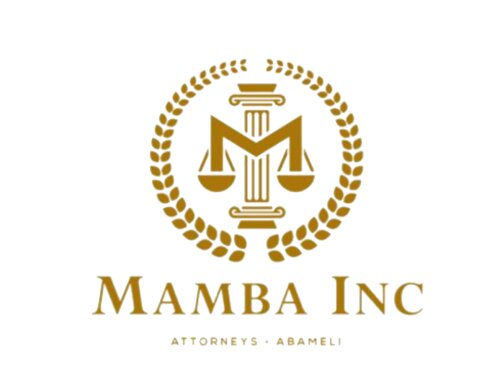Best Private Equity Lawyers in Centurion
Share your needs with us, get contacted by law firms.
Free. Takes 2 min.
List of the best lawyers in Centurion, South Africa
About Private Equity Law in Centurion, South Africa
Private equity refers to investment capital that is not listed on a public exchange, usually coming from high-net-worth individuals, institutional investors, or specialized firms. In Centurion, South Africa - a key commercial hub within Gauteng - the private equity sector plays a significant role in funding startups, expanding established businesses, and facilitating mergers and acquisitions. The legal environment governing private equity transactions is shaped by national and regional laws that safeguard both investor and company interests, ensure compliance, and foster economic growth in the region.
Why You May Need a Lawyer
Private equity transactions are complex and can expose investors and business owners to significant financial and legal risks. Common situations where you may require legal help in private equity include:
- Drafting or reviewing investment agreements or shareholder agreements
- Legal due diligence on companies targeted for investment
- Structuring deals to ensure compliance with South African law
- Navigating regulatory approvals, such as those from the Competition Commission
- Resolving disputes between investors, partners, or company founders
- Managing tax implications of private equity deals
- Advising on exit strategies, including buyouts, IPOs, or secondary sales
- Ensuring compliance with the Broad-Based Black Economic Empowerment (B-BBEE) requirements
Local Laws Overview
Private equity in Centurion is regulated primarily under South African national law, but local business practices and economic policy also play a part. Key regulatory frameworks that impact private equity include:
- Companies Act 71 of 2008: Sets the foundation for corporate governance, director duties, and shareholder rights.
- Financial Sector Regulation Act 9 of 2017: Oversees the operations of financial institutions and dictates licensing requirements.
- Competition Act 89 of 1998: Requires certain mergers and acquisitions to be approved by the Competition Commission to prevent monopolistic practices.
- Exchange Control Regulations: Affect the flow of capital into and out of South Africa, particularly relevant for foreign investors.
- B-BBEE Act 53 of 2003: Promotes the participation of black individuals in the economy, affecting both target companies and private equity structures.
- Taxation Laws: Complex rules define the tax treatment of investment gains, dividends, and carried interest.
Frequently Asked Questions
What is private equity?
Private equity involves investing directly in private companies or engaging in buyouts of public companies, resulting in their delisting from stock exchanges. The primary goal is to improve company value over time and exit profitably.
Is private equity legal in South Africa and Centurion?
Yes, private equity is legal and actively supported by South African law, provided investors and companies comply with all relevant regulations and reporting requirements.
Are there any special requirements for foreign investors in private equity?
Foreign investors may face additional requirements, especially related to exchange control regulations and the need for local approvals for certain transactions. It is important to seek legal advice to ensure compliance.
How does the B-BBEE policy affect private equity deals?
Private equity deals often require considering B-BBEE status, both for compliance and for maximizing value in the South African context. Deals that promote transformation may qualify for added incentives or ease of doing business with government entities.
What documents are typically involved in a private equity transaction?
Key documents include term sheets, shareholder agreements, subscription agreements, due diligence reports, and regulatory filings. Legal review of these documents is essential.
Do all transactions require Competition Commission approval?
Not all, but medium and large mergers or acquisitions may require review and approval to prevent anti-competitive behavior. Thresholds are defined by law.
What are my exit options as a private equity investor?
Exits may occur through initial public offerings (IPOs), trade sales, management buyouts, or secondary sales to other investors. Legal structuring can affect timing and tax outcomes.
Why is due diligence important in private equity?
Due diligence helps assess the risks, legal compliance, financial health, and liabilities of the target company, protecting investors from unforeseen issues.
What taxes apply to private equity investments?
Capital gains tax, dividends tax, and sometimes income tax may apply, depending on the structure of the investment and the residence of the investor.
How can a local lawyer assist with cross-border private equity deals?
A local lawyer understands South African regulations, can coordinate with international counsel, manage exchange control processes, and ensure the deal is enforceable in South Africa.
Additional Resources
For further guidance or official information regarding private equity in Centurion and South Africa, consider consulting the following:
- South African Private Equity and Venture Capital Association (SAVCA)
- Companies and Intellectual Property Commission (CIPC)
- Competition Commission of South Africa
- National Treasury of South Africa
- South African Revenue Service (SARS) for tax matters
- Local branches of law societies or bar associations
- Department of Trade, Industry and Competition (DTIC)
Next Steps
If you are considering, or already involved in, a private equity transaction in Centurion, it is vital to seek qualified legal advice early. To proceed:
- Identify and contact a reputable law firm or specialist lawyer experienced in private equity and corporate law.
- Prepare relevant company and financial documents before your first consultation.
- Discuss your investment goals, potential risks, and any regulatory concerns with your lawyer.
- Work collaboratively with your legal counsel to navigate negotiations, draft agreements, and address compliance issues.
- Regularly review your investment structure in light of changing legal and regulatory requirements.
Lawzana helps you find the best lawyers and law firms in Centurion through a curated and pre-screened list of qualified legal professionals. Our platform offers rankings and detailed profiles of attorneys and law firms, allowing you to compare based on practice areas, including Private Equity, experience, and client feedback.
Each profile includes a description of the firm's areas of practice, client reviews, team members and partners, year of establishment, spoken languages, office locations, contact information, social media presence, and any published articles or resources. Most firms on our platform speak English and are experienced in both local and international legal matters.
Get a quote from top-rated law firms in Centurion, South Africa — quickly, securely, and without unnecessary hassle.
Disclaimer:
The information provided on this page is for general informational purposes only and does not constitute legal advice. While we strive to ensure the accuracy and relevance of the content, legal information may change over time, and interpretations of the law can vary. You should always consult with a qualified legal professional for advice specific to your situation.
We disclaim all liability for actions taken or not taken based on the content of this page. If you believe any information is incorrect or outdated, please contact us, and we will review and update it where appropriate.















